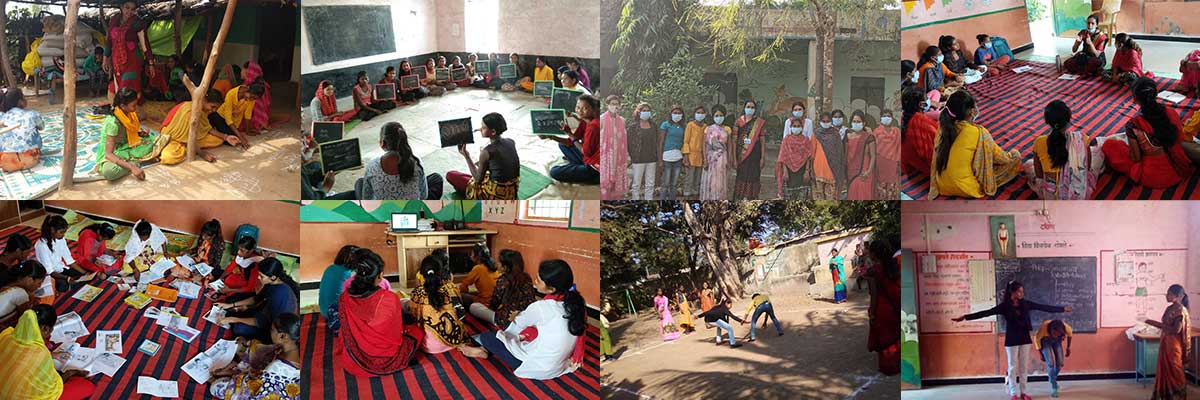
In 2020, when we reached five tribal villages with the idea of starting village libraries through the young girls and women, we found that all the girls and women we had identified through a process, do not have even basic literacy skills despite their education till 8th or 10th class. From more interactions with them, we got to know that the girls do not know the meaning of the signature. They cannot even tell their age accurately. They never saw a Bank or Post office, the places of financial transactions. They do go for labour, earn some money but have little idea about financial literacy, say, savings, investing etc. This situation led us to kickstart the programme for tribal adolecent girls through school libraries.
In 2022 , We started the existing school library program in the new geography, i.e. in 4 Ashramschools from Shahpur block of Thane district. Though the programme caters to the all children studying in from 5th to 7th grade, the special focus is on the girls.
Aafir is a korku word for flying. Korku is a tribal language of Korku community with whom we work at Akola.
We run the library programme in 4 Ashramschools, which are governed by Tribal Development Department of Maharashtra. The programme is run throughout the year. Specially appointed book fairies run the programme in a school assigned to them. Students from 5th to 7th grade are enrolled in this programme